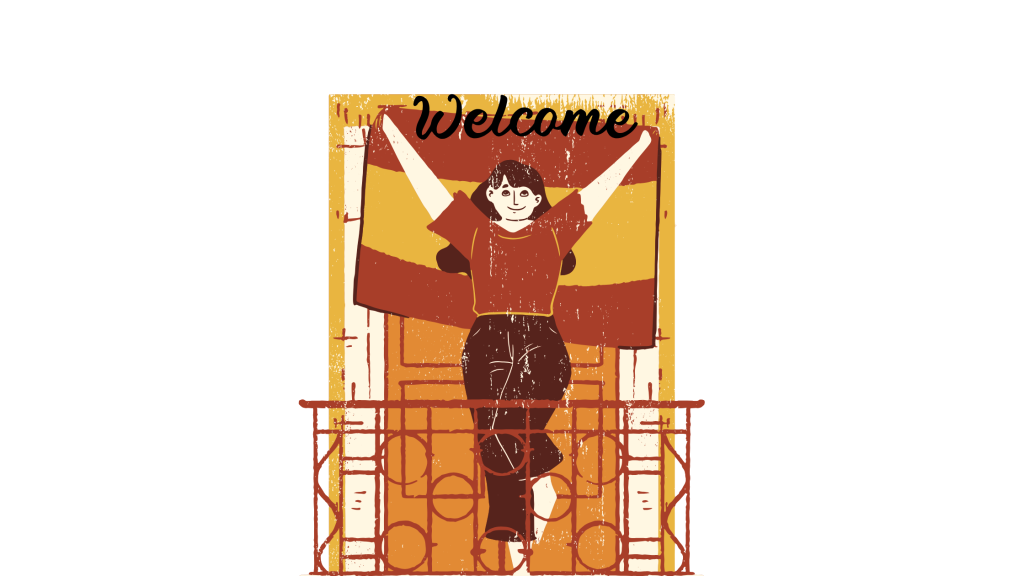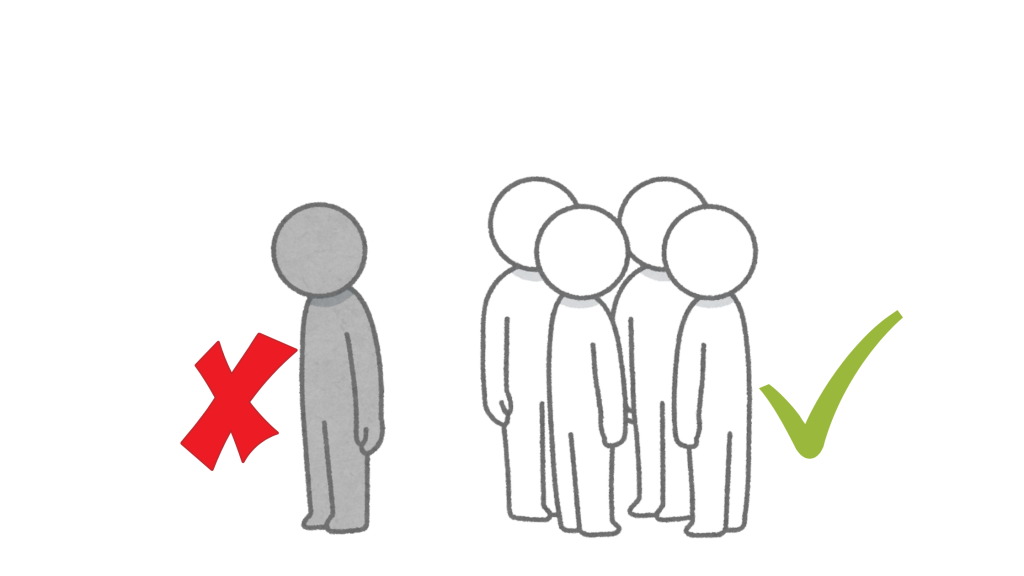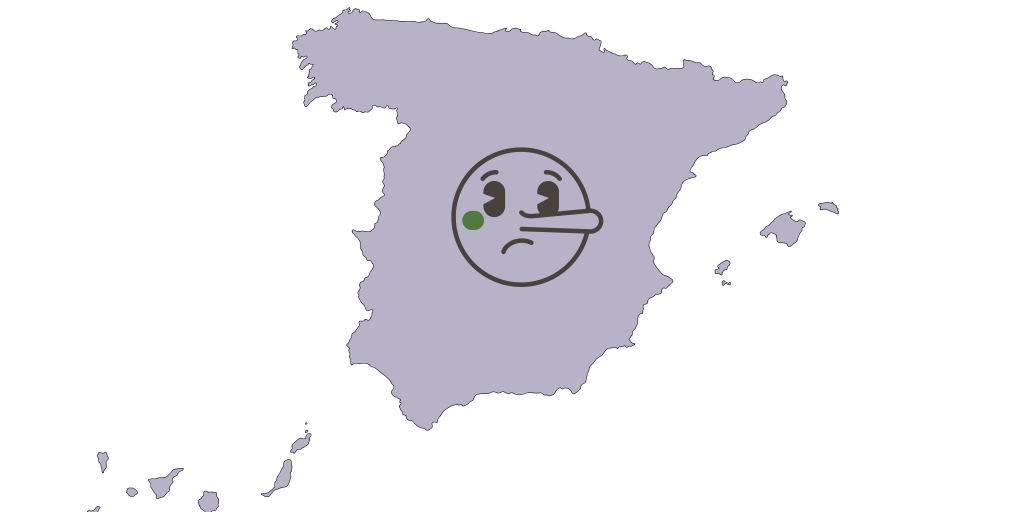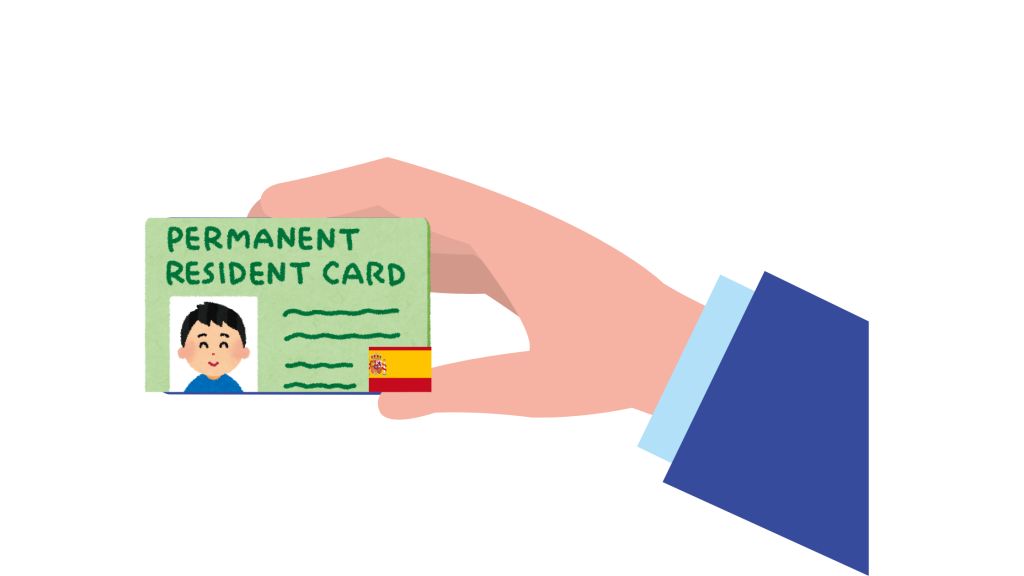Ah, Spain—the land of sunshine, siestas, and a whole lot of foreigners. From retirees sipping wine on the Costa del Sol to underpaid waiters keeping Madrid’s nightlife alive, Spain is full of foreigners. But let’s be honest—not all foreigners are treated the same.
Some arrive and are instantly labeled “ideal expats”—you know, the ones with the right passport, the right bank balance, and a charming cluelessness about Spanish bureaucracy. Others? Not so lucky. They’re often seen as the ‘unwanted’ kind of foreigners—the ones who do the hard jobs, keep the economy running, and yet somehow get side-eye from landlords, police, and, well, half of Twitter.
So why do some get the VIP treatment while others get stuck in endless visa limbos? Let’s talk about it.
The “Good” Foreigners: Welcome to Spain

When Spaniards think of an expat, the image that comes to mind is almost always the same: a retired British couple in Málaga, a French entrepreneur in Barcelona, or a remote-working American who moved to Valencia because they read on Reddit that the cost of living is “unbelievably cheap” (for them, anyway). These are the foreigners Spain loves to welcome—wallets full, paperwork in order, and absolutely no intention of taking local jobs (because, let’s be real, no Spaniard is fighting to open yet another overpriced vegan café for digital nomads).
These are the right kind of foreigners—the ones who buy property, start businesses, and keep the real estate market buzzing with cash offers. The ones who might never master Spanish but are met with patient smiles and a forgiving, ‘Oh, they’re just here for the sun!’ No one minds if they spend decades in Spain without quite figuring out what a padrón is. They’re seen as good-natured, contributing, and, above all, non-disruptive.
And when they do face obstacles—whether it’s a tax hiccup, a visa issue, or an encounter with Spain’s famously intricate bureaucracy—they have the means to navigate it with ease. A call to the right lawyer, an email to an embassy, maybe a bit of extra paperwork, and the problem is smoothed over. If they don’t meet the residency requirements? No worries—there’s always a new visa tailored to their needs, from the Golden Visa for investors to the Non-Lucrative Visa for retirees, and now the Digital Nomad Visa, designed to attract remote workers looking for a sunny change of scenery.
Even Spain’s notoriously slow bureaucracy—often a maze of missing documents and long waiting lists—seems to move a little faster for this kind of foreigners. Need a bank account? It’s sorted with minimal hassle. Looking for an apartment? Landlords are eager to hand over the keys. With high salaries and financial stability, they’re seen as ideal tenants—low risk, reliable, and unlikely to overcrowd a rental.
It’s an easy life. But only for some. Because for every well-off foreigner sipping wine on a sun-drenched terrace, there’s another foreigner—one without the right passport or bank balance—who’s being ghosted by landlords, rejected by banks, and stuck in an immigration limbo with no end in sight.
The Two Sides of Immigrating: Privilege vs. Struggle

Before I go any further, I just want to say one thing: when I talk about the things I’ve noticed—like landlords being hesitant to rent to people with certain passports, or how some nationalities seem to have a harder time navigating the system—I’m not trying to accuse anyone of being racist. These aren’t always deliberate actions. More often, it’s unconscious bias. It’s not about being a “bad person” but about how systems, history, and culture influence the way we see things.
I’m not here to judge, I’m just sharing what I’ve seen and experienced. And let’s be real, as a white Swiss immigrant, I’ve had my fair share of privileges. My passport alone has opened doors for me that haven’t always been the same for some of my friends from other countries. It’s not that I’m special—it’s just that the immigration experience can be pretty different depending on where you’re from.
So yeah, this isn’t about blaming anyone or pointing fingers. It’s just about recognizing that these things exist and talking about them, so we can all understand the bigger picture.
The “Unwanted” Foreigners: Same Country, Different Rules

Now, let’s talk about other expats—or should we say immigrants? Those who also came to Spain seeking a better life but without the cushion of a generous pension, a remote job from Silicon Valley, or a passport that opens every door.
Latin Americans, North Africans, Eastern Europeans—many of them form the backbone of Spain’s workforce. They’re cleaning hotel rooms on the Costa del Sol, working long shifts in restaurant kitchens, caring for older people and helping to build Madrid’s skyline. Yet, despite their contributions, their experience in Spain often looks very different from that of their wealthier counterparts.
Expat or Immigrant? The Power of a Word
The words we use shape perception. “Expat” often brings to mind a sun-soaked retiree or a remote worker sipping coffee by the sea, while “immigrant” tends to carry weightier connotations—struggles, bureaucracy, integration. Yet, at their core, both terms describe people who leave their home country to live elsewhere. Why the difference? Try thinking about a British expat in Spain and then about a Moroccan immigrant in Spain. I am pretty sure the difference in the images that popped in your head is striking.
The term expat is often associated with people from wealthier countries who move abroad for lifestyle reasons—chasing better weather, business opportunities, or a fresh start. Meanwhile, immigrant is typically used for those who move out of necessity, even if they integrate into Spanish society, speak the language fluently, and contribute significantly to the economy.
It all comes down to perception. Expat has a glamorous ring to it, evoking images of beachfront villas and leisurely brunches. Immigrant carries different connotations, often tied to bureaucracy, struggle, and the challenge of being accepted. This subtle distinction shapes attitudes, policies, and even opportunities for different groups of foreigners living in Spain.
Reality Check: Unequal Experiences of Foreigners in Spain

Moving to Spain can be a vastly different experience depending on where you’re from.
A British retiree who never learns Spanish? Oh, they’re just here to enjoy life!
A Venezuelan who speaks perfect Spanish? Are they competing for local jobs?
A Swedish remote worker making €5K a month? Fantastic! They’re boosting the economy!
A Peruvian nurse earning minimum wage? Is there enough demand for their work?
Same country. Same bureaucracy. Yet, the process can feel much smoother for some than for others.
For expats from wealthier nations, getting settled is often straightforward—opening a bank account, securing a rental contract, and navigating the visa system come with relatively few roadblocks. But for others, the process can be long, complicated, and full of unexpected challenges.
Housing Hurdles: The “Extra Paperwork” Barrier
Finding a place to live in Spain isn’t easy for anyone, but for some, it can be particularly frustrating. While many landlords are welcoming, others may set higher requirements for tenants based on their nationality. British, American, or German renters might be asked for standard paperwork like pay slips and a work contract. Meanwhile, those from Morocco, the Dominican Republic, or Bolivia may face additional hurdles—higher deposits, extra documentation, or vague explanations about why they’re not the right fit.
These unspoken preferences can make an already competitive housing market even tougher to navigate.
Visa Challenges: A Complicated System
Spain offers a range of visa options, from the Golden Visa to the Digital Nomad Visa, making it easier for wealthier foreigners to establish themselves. However, for those working in service industries—cleaners, restaurant staff, caregivers—the process of maintaining legal status can be much more difficult. Even with steady employment and tax contributions, renewing work permits isn’t always guaranteed.
Appointments can be scarce, paperwork requirements may change unexpectedly, and falling out of status—even briefly—can make it incredibly hard to regain legal residency.
A Warm Welcome—For Some

Beyond the paperwork, daily life can feel very different depending on where you’re from. A German tourist might walk through Madrid’s Puerta del Sol unnoticed, while a Senegalese street vendor is more likely to be stopped by police. People from certain backgrounds—for example, those from Africa or Latin America—often report more scrutiny in everyday situations, from ID checks to job applications.
Spain is known for its hospitality, and for many foreigners—including me, it truly feels like home. When I arrived, I didn’t have a job, and my Spanish was shaky at best. But people were patient, kind, and always willing to help. They made an effort to understand me, gave me directions, and even offered advice. Yet, I’ve met others who arrived in Spain in the exact same situation but had a very different experience. Their broken Spanish wasn’t met with the same patience; people didn’t go out of their way to help, and sometimes they were simply ignored.
Spain remains a country full of opportunity, but how easily those opportunities are accessed depends largely on where you’re coming from.
The Hypocrisy: They Need Foreigners in Spain, But Won’t Admit It

Here’s the kicker: Spain literally needs immigration to survive.
The country has one of the lowest birth rates in Europe, an aging population, and a shrinking workforce. Without a steady influx of immigrants, entire industries—from agriculture to elder care—would collapse. Yet, instead of implementing fair policies that acknowledge this economic reality, Spain continues to make life unnecessarily difficult for the very people who keep the country running.
Need a visa? Brace yourself for a bureaucratic odyssey of endless paperwork, contradictory requirements, and appointment slots that disappear faster than concert tickets. Want to rent an apartment? If your passport isn’t from the “right” country, get ready for landlords to stop responding to your messages. Working legally? Even if you have a job, the government might still find a reason to deny your permit renewal.
And then there’s the ultimate irony: while Spain tightens restrictions on low-income immigrants, it bends over backwards to attract wealthy ones. Just flash enough cash, and the system suddenly becomes incredibly accommodating. The Golden Visa practically rolls out the red carpet for non-EU investors who can afford to buy property. The Digital Nomad Visa was tailor-made for remote workers who bring in foreign income, ensuring they don’t “burden” Spain’s economy (as if cleaning hotel rooms or caring for older people isn’t economic contribution).
So, while some immigrants spend years battling red tape just to be allowed to work, others get to sip sangria in peace, their biggest bureaucratic hurdle being which luxury visa to choose.
Final Thoughts: Spain Needs a Reality Check
Spain thrives on its diversity, yet it seems to have a blind spot when it comes to who truly “belongs” here. Wealthy retirees and high-skilled professionals are celebrated, encouraged, and accommodated. Meanwhile, the very workers who keep the country’s tourism and service industries alive—often in precarious conditions— often face endless hurdles, from legal limbo to outright discrimination.
But here’s the thing: migration isn’t just about individual choice; it’s about systems that determine who gets an easy ride and who has to fight for every inch. And those systems shape not just immigration policy, but how people see themselves. That’s why some proudly call themselves “expats” while others are labeled “immigrants.” The difference isn’t just in paperwork—it’s in privilege.
So maybe the question isn’t just who belongs in Spain, but who gets to feel like they do? And what does that say about the country we think we know?
This is a loaded topic that could be discussed for hours. As a foreigner, what are your thoughts? I would love to hear your experience and perception of how Spain “treated” you!

